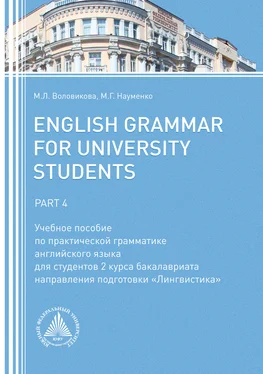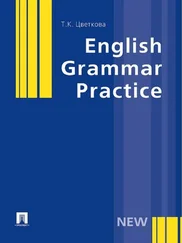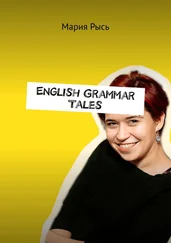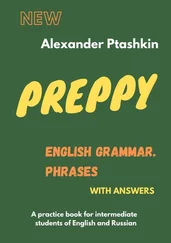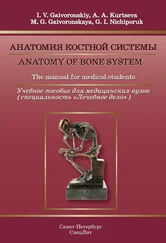The verbal nature of non-finite forms is also revealed in combinability. Similar to finite verbs they may take direct, indirect, and prepositional objects, adverbial modifiers, and subordinate clauses.
Verbals cannot be a predicate in the sentence but they can be used as part of a compound predicate. They may form predicative constructions which consist of two elements: a noun or a pronoun and a verbal. They are in predicative relation that resembles the relation of the subject and the predicate.
I would like you to play with the child.
I saw him cross the street.
Father had his car repaired yesterday.
The non-verbal nature of non-finites may be seen in their syntactical functions. The Infinitive and the Gerund perform the syntactical functions of subject, object and predicative that are similar to the syntactical functions of the noun. Participle I may function as part of a compound nominal predicate (predicative), attribute, and adverbial modifier; Participle II may function as attribute and predicative.
THE INFINITIVE
The Infinitive is the form of the verb which expresses a process in general, and is known as the initial form of the verb.
The Infinitive may be used with the particle to. Sometimes the particle is separated from the Infinitive by other words, e.g. an adverb (split Infinitive).
This separation is usually used for the purpose of emphasis.
You have toreally watchhim.
Historically, the Infinitive is a verbal noun. That is why it combines the features of the verb with those of the noun.
The verbal featuresof the Infinitive are manifested in its morphological and syntactical characteristics.
1. It possesses the grammatical categories of voice, aspect and temporal correlation.
It was too dark to read the map and we took the wrong turning.
You’re not supposed to be reading this.
Fleming, Tolkien and CS Lewis are the authors that British people most claim – falsely – to have read.
This is a book to be read by everybody taking this course!
Why do some new messages appear to have been read when I haven’t opened them yet?
She was seen to have been reading the new book in the garden.
2. The Infinitive possesses the verb combinability:
a) The Infinitive of transitive (переходные) verbs takes a direct object.
Alex may send (transitive verb) a postcard (direct object) from Argentina.
3. The Infinitive can be modified by adverbials.
She agreed to leave the room quickly and quietly.
The nominal character of the Infinitive is manifested in its syntactical functions.
To drive fast in such weather is pretty dangerous (subject).
Their duty will be to look after the children (predicative).
I asked her to explain everything (object).
I have no desire to go there (attribute).
The grammatical categories of the infinitive
The Infinitive possesses verbal categories: temporal correlation, aspect, and voice (for transitive forms) (as shown in the table below) [Тивьяева, 2007].
FORMS OF THE INFINITIVE
As for temporal correlation, the forms of the Infinitive show whether the action is simultaneous to the action expressed by the finite verb, or prior to it.
1. The Non-Perfect (Indefinite, Simple) Infinitive denotes an action simultaneous with that of the finite verb.
Jeremy likes to write letters.
Jeremy liked to write letters.
Jeremy will like to write letters.
2. The Continuous Infinitive expresses an action in progress or happening over a period of time and simultaneous with that of the finite verb. The Continuous Infinitive is both a temporal and aspect form, becauseit expresses how an action, denoted by the Infinitive, extends over time.
You must be joking.
I happened to be waiting for the bus when the accident happened.
3. The Perfect Infinitive denotes an action prior to that of the finite verb.
Lucy was known to have left the day before.
I am happy to have finished school.
If you had run faster you would have won the race.
4. The Perfect Continuous Infinitive denotes an action in progress or happening over a period of time which is prior to that of the finite verb. The Perfect Continuous Infinitive is both a temporal and aspect form,because it expresses how an action, denoted by the Infinitive, extends over time.
I’m glad to have been living in Barcelona for the last ten years.
But for the fog the travellers would have been wandering in the forest for a long time.
The Infinitive of transitive verbs possesses voice distinctions and has the forms of the Active and Passive Voice.
Please remember to bring a mat and a towel with you to the next aerobics class (Indefinite Active).
He happened to be brought up in a very rich family (Indefinite Passive). President Trump is very proud to have brought the subject of illegal immigration back into the discussion (Perfect Active).
Tomatoes are known to have been brought to Europe in the XVI thcentury (Perfect Passive).
The active form of the Infinitive shows that the subject of the sentence, the person or thing characterised by the Infinitive, or the person or thing expressed in the Infinitive predicative construction is the doer of the action denoted by the Infinitive.
The passive form of the Infinitive shows that the subject of the sentence, the person or thing characterized by the Infinitive, or the person or thing expressed in the Infinitive predicative construction is affected by the action denoted by the Infinitive [Шрамко, Степанова, Кожемяка, 2008].
The use of the infinitive without the particle to (the bare infinitive)
The Infinitive is used without the particle to in the following cases:
1. After auxiliary verbs.
Do you like music?
Seldom do we witness such catastrophes.
Does anyone know where I left my diary?
2. After modal verbs (except ought to) and modal expressions had better, would rather, would sooner.
You must use some verbs more than once.
We’d better not borrow Diane’s books without asking her.
She’d sooner die than give up.
3. After verbs of sense perception (see, notice, watch, observe, hear, feel, smell, etc.) as a part of the Objective Infinitive Construction.
I watched him arrive.
We noticed her runaway from the building .
Note, that in passive sentences with these verbs a to-Infinitive is used.
He was watched to arrive.
He was noticed to run away from the house.
4. After verbs of inducement (let, make, have) as a part of the Objective Infinitive Construction.
I made Peterwait outside.
Читать дальше
